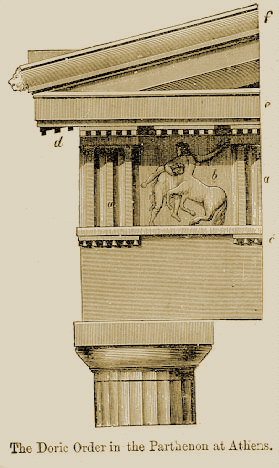At this point, we must address the issue that will certainly be around the heads of many readers: the comparison Sparta-Athens. What city was better?
Often we are told that Athens represented the artistic and spiritual summit of Greece and Sparta the physical and warrior evolution. It’s not as easy as that. We must start from the basis that it is a great mistake to judge the development of a society for its commercial or material advancement. This would lead us to conclude that the illiterate Charlemagne was lower than anybody else present, or Dubai the home of the world’s most exalted civilisation…
Thus we come to the important subject of art. It usually happens that it is a common argument to vilify Sparta. The Spartans used to say that they carved monuments in the flesh, which implied that their art was a living one: literally them, and the individuals that composed their homeland.
But Sparta also had conventional art as understood in the present. It was famous throughout Greece for its music and dance (of which nothing has survived), as well as its highly prised poetry that has come to us fragmented. Its architects and sculptors were employed in such prestigious places as Delphi and Olympia, and imposed a stamp of straight simplicity and crystal clarity in their works.
 The best example of this is the sober Doric style, a direct heritage of Sparta that became a model not only for countless temples throughout Greece, as the Parthenon in Athens itself, but also for the classic taste of later Europe that has endeavoured to continue the legacy of Greece and Rome.
The best example of this is the sober Doric style, a direct heritage of Sparta that became a model not only for countless temples throughout Greece, as the Parthenon in Athens itself, but also for the classic taste of later Europe that has endeavoured to continue the legacy of Greece and Rome.
(Passages from one of Evropa Soberana’s essays in The Fair Race’s Darkest Hour.)
6 replies on “The supremacy over Athens”
No editor’s note about Charlemagne’s being one of the prime traitors of the Aryans encompassed in vileness only by Constantine himself? He revived the unholy Western Empire – the definition of a short-sighted power-hungry greedy moron. Just like Napoleon a millennium after. The illiterate nouvo riche never change.
Also, on this topic, Nietzsche blamed Socrates for the degeneration of Hellas, could you or E.S. elaborate? I’m still too dumb to get it, and no philosophy teacher in the world will even imagine my question…
You see Charlemagne as being short sighted and a catastrophe for Europe, now this wouldn’t mitigate those defects, but do you have an opinion on his ability to strategize militarily? Was he a good strategist, or was he simply in a fortunate position? I am not saying him being a good strategist would mean he’s not a moron, I am just wondering if there has been any analysis of this issue.
Apollonian Germ has a good explanation of NIetzsche’s problem with Socrates:
https://www.youtube.com/watch?v=SWPGr0_cPZM
Please read an article that I wrote on renegadetribune (link).
Essentially Nietzsche’s view is that Socrates is a symptom and not the cause of Greece’s degeneration.
I just read your essay you linked to, it was very good. I remember listening to an interview you did awhile back with them, you lived in India, right? It seems like you were saying in the essay that white people sacrificed a connection to their biological drives in order to develop the technology we developed, and that this has been expressed in weird passive aggressive verbal behaviors that further divorce the mind from the body.
Some stuff related to Jews:
Jews claim descent from Jacob, they say: “Jacob fights with his words, Esau fights with his fists”. Jews curse their enemies, see: psalm 109, a prayer to curse enemies.
Ancient Greeks also prayed to curse enemies, see: Chryses
Yes, you interpreted my article in the right way. I know this insight is hard to put into words but your wording more or less covers the essence.
Indeed , through my experience with Tibetan meditation masters I was able to build my understanding of the whole psycho-somatic issue.